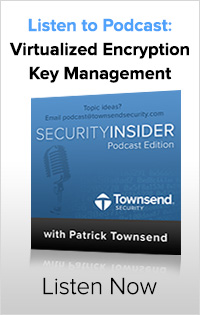Even though technology has evolved to reduce cost and complexity in our IT infrastructure through virtualization and cloud computing, these technologies have also introduced new concerns and complications around data security. The main reason security and IT professionals are so concerned about virtualization and the cloud is that these environments share resources. In a virtualized environment, a single application will share resources with every other application including RAM, disk storage, memory, and CPU. In a cloud environment, these same resources are shared amongst multiple users.

A fundamental fact to acknowledge if you’re using virtualized, hosted, or cloud services is that the companies who provide these services are not required to protect your data. In fact, you should never assume that they are doing just that. When it comes to meeting compliance regulations such as PCI, HIPAA/HITECH, or GLBA/FFIEC, the burden of compliance falls upon individual companies and organizations. If organizations want meet compliance and protect their data from a data breach, they need a powerful, certified, and industry standard data protection strategy.
When it comes to protecting sensitive data such as credit card information, social security numbers, protected health information (PHI), and other personally identifiable information (PII), it is a recognized fact that only using network security protocols such as firewalls and strong passwords is not enough to protect data from outside intruders. The Payment Card Industry Security Standards Council (PCI-SSC) knows this, which is why they require the use of strong encryption and encryption key management to protect credit card data.
Once you realize this, then you should also consider your options when choosing an encryption key manager. An encryption key manager will generate and protect your encryption keys and should include these five critical features:
- Certifications. Is the encryption key manager NIST FIPS 140-2 validated? The National Institute of Standards and Technology (NIST) is governmental organization that sets the highest standard for encryption and encryption key management. A FIPS 140-2 level compliance means that your key manager has been heavily tested and will stand up to scrutiny in the event of a data breach.
- Virtualization and Cloud Compatibility. Even if you haven’t moved to virtualized environments or the cloud, it is very likely that someday you’ll consider these options. You want to choose an encryption key manager that can securely protect your encryption keys “in-house,” and will move with you to virtualized environments or the cloud when you’re ready.
- A Key Manager that Uses Best Practices. Encryption key management best practices are not outrightly required by many compliance regulations, but they are critical to a successful data security strategy. Protocols such as dual control and separation of duties should be implemented in your encryption key manager as a part of its operability. This is the only way to truly protect data and protect yourself in the event of a data breach.
- Easy to Deploy. Encryption and key management has a reputation for being incredibly difficult. That may have been true ten years ago, but today encryption key management can be easy to deploy in your organization, depending on your provider. Keep in mind your vendor’s ability to deploy key management in multi-platform environments, in your own IT infrastructure as well as cloud and virtualized environments, if it’s easy enough to install and deploy yourself, and if your key management vendor provides supplemental code and encryption libraries free of charge.
- World Class Technical Support. Choosing an encryption key manager and deploying it is a big decision. Choose a key manager with a reputation for amazing technical support.
Townsend Security’s Alliance Key Manager for VMware now supports VMware and vCloud.

